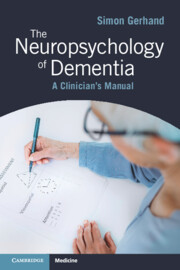Book contents
- The Neuropsychology of Dementia
- The Neuropsychology of Dementia
- Copyright page
- Contents
- Preface
- Acknowledgements
- Section 1 Essential Background Knowledge
- Section 2 Diagnosing Different Types of Dementia
- Section 3 Intervention
- Chapter 10 Cognitive Rehabilitation
- Chapter 11 Pharmacological Interventions
- Chapter 12 Reducing Risk Factors for Mild Cognitive Impairment and Early Dementia
- Section 4 Recent Developments/Contemporary Issues
- Index
- References
Chapter 11 - Pharmacological Interventions
from Section 3 - Intervention
Published online by Cambridge University Press: 25 October 2024
- The Neuropsychology of Dementia
- The Neuropsychology of Dementia
- Copyright page
- Contents
- Preface
- Acknowledgements
- Section 1 Essential Background Knowledge
- Section 2 Diagnosing Different Types of Dementia
- Section 3 Intervention
- Chapter 10 Cognitive Rehabilitation
- Chapter 11 Pharmacological Interventions
- Chapter 12 Reducing Risk Factors for Mild Cognitive Impairment and Early Dementia
- Section 4 Recent Developments/Contemporary Issues
- Index
- References
Summary
This chapter reviews current options for pharmacological interventions for treating dementia and MCI. For the last 20 years, ACHe inhibitors have been the main option for symptomatic treatment of dementia. The evidence base for their effectiveness is considered. More recent developments are reviewed for pharmacological interventions intended to be disease-modifying. These aim to remove beta amyloid protein, which is the hallmark of Alzheimer’s disease, with the aim of halting the disease’s progress. This is an emerging field, with an evidence base which is still developing, but represents an exciting development.
Keywords
- Type
- Chapter
- Information
- The Neuropsychology of DementiaA Clinician's Manual, pp. 139 - 147Publisher: Cambridge University PressPrint publication year: 2024

